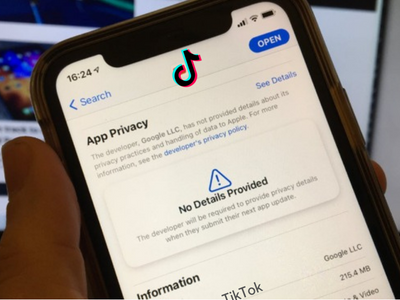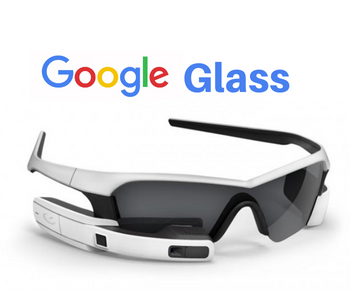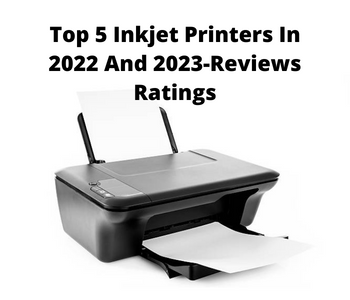[Warning] High Blood Pressure Can Kill You!
High Blood Pressure is such a disease that can take your life. Do not get surprised by knowing this. It is true and I will tell you my personal story so that you believe it.
My father was suffering from High Blood Pressure and it was noticed only when he complained that he is having poor vision. When I took him to the Eye Doctor, after doing all necessary tests, he said that the vision is going to be worst because of the High Blood Pressure he is having and it has to be controlled immediately and referred to the Medicine Specialist to treat High Blood Pressure. The Eye Doctor did not treat for vision rather advised, if you control your Blood Pressure, your vision will get well gradually.
The treatment started and it was a continuous process. I was doing job at that time and I use to stay away from home. One fine day, one of the old ladies in my neighbor came to my father and said with tearful eyes that my sons are not giving me medicine as she was also having High Blood Pressure and I am falling here and there because of headaches. My father immediately brought all his BP medicines and gave to her. The worst part is he did not care about the consequences of discontinuing the medicine and did not inform anyone in the family.
It was not too far, only after 5 to 6 days one day in the morning about 5:30 AM while he was entering the house from outside he got brain stroke and fell down there. One neighbor saw him falling down and shouted. After that, he was immediately taken to hospital which was 100 KM away. After the MRI and other tests, the doctor told me that his left side has gone paralysis and the blood clot is in such a position that the operation can be a huge risk. There is hardly a 0.1% chance that the operation will succeed. The only way is if the medicine works the clot gets melted and then only he can recover. Meantime he already has gone to coma. After struggling for 30 days he expired.
A mere tablet of 2 rupees taken my father’s life and that is because of negligence.
Since you are very emotional now, please take a look at the detailed info about High Blood Pressure and beware of this serious disease and spread knowledge to others too.
WHAT IS HIGH BLOOD PRESSURE?
A condition in which the force of the blood against the artery walls is too high. Usually, hypertension is defined as blood pressure above 140/90 and is considered severe if the pressure is above 180/120. High blood pressure often has no symptoms. Over time, if untreated, it can cause health conditions, such as heart disease and stroke. Eating a healthier diet with less salt, exercising regularly and taking medication can help lower blood pressure.
SYMPTOMS OF HIGH BLOOD PRESSURE
Myth: People with high blood pressure will experience symptoms, like nervousness, sweating, difficulty sleeping or facial flushing.
Truth: High blood pressure is a largely symptomless “silent killer.” If you ignore your blood pressure because you think a certain symptom or sign will alert you to the problem, you are taking a dangerous chance with your life.
In most cases, high blood pressure does not cause headaches or nosebleeds
The best evidence indicates that high blood pressure does not cause headaches or nosebleeds, except in the case of hypertensive crisis, a medical emergency when blood pressure is 180/110 mm Hg or higher. If your blood pressure is unusually high AND you have headache or nosebleed and are feeling unwell, wait five minutes and retest. If your reading remains at 180/110 mm Hg or higher, call 9-1-1.
If you are experiencing severe headaches or nosebleeds and are otherwise unwell, contact your doctor as they could be symptoms of other health conditions.
Other inconclusively related symptoms
A variety of symptoms may be indirectly related to but are not always caused by, high blood pressure, such as:
Blood spots in the eyes
Blood spots in the eyes (subconjunctival hemorrhage) are more common in people with diabetes or high blood pressure, but neither condition causes the blood spots. Floaters in the eyes are also not related to high blood pressure. However, an eye doctor (ophthalmologist) may be able to detect damage to the optic nerve caused by untreated high blood pressure.
Facial flushing
Facial flushing occurs when blood vessels in the face dilate. It can occur unpredictably or in response to certain triggers such as sun exposure, cold weather, spicy foods, wind, hot drinks, and skin-care products. Facial flushing can also occur with emotional stress, exposure to heat or hot water, alcohol consumption and exercise — all of which can raise blood pressure temporarily. While facial flushing may occur while your blood pressure is higher than usual, high blood pressure is not the cause of facial flushing.
Dizziness
While dizziness can be a side effect of some blood pressure medications, it is not caused by high blood pressure. However, dizziness should not be ignored, especially if the onset is sudden. Sudden dizziness, loss of balance or coordination and trouble walking are all warning signs of a stroke. High blood pressure is a leading risk factor for stroke.
CAUSE OF HIGH BLOOD PRESSURE
Blood pressure is the result of the amount of blood pumped through your body by the heart and your arteries’ resistance to the blood flow. High blood pressure occurs when your arteries cannot dilate properly to accommodate changes in blood flow.
High blood pressure takes many years to develop, and usually causes no symptoms at all. Most people will discover they have it when they go for a medical check-up, suffer a heart attack or develop erectile dysfunction.
As we age, our arteries become stiffer and less flexible, therefore a certain increase in blood pressure is normal over the years. However, abnormally high blood pressure is a real problem that can lead to heart attack and stroke. Over time, the excessive pressure on the walls of your arteries will cause damage to the arteries.
Technically speaking, what causes high blood pressure are narrow, stiff and/or clogged arteries. It can be difficult to understand exactly what is causing this narrowing or clogging.
However, it is very quick and easy to diagnose hypertension. After that, you need to work with your GP, who will develop a treatment plan for you.
HOW TO CONTROL HIGH BLOOD PRESSURE?
Lifestyle plays an important role in treating your high blood pressure. If you successfully control your blood pressure with a healthy lifestyle, you might avoid, delay or reduce the need for medication.
Maintaining a healthy weight. Being overweight can make you two to six times more likely to develop high blood pressure than if you are at your desirable weight. Even small amounts of weight loss can make a big difference in helping to prevent and treat high blood pressure.
Getting regular exercise: People who are physically active have a lower risk of getting high blood pressure — 20% to 50% lower — than people who are not active. You don’t have to be a marathon runner to benefit from physical activity. Even light activities, if done daily, can help lower your risk.
Reducing salt intake: Often, when people with high blood pressure cut back on salt, their blood pressure falls. Cutting back on salt also prevents blood pressure from rising. Drinking alcohol in moderation, if at all: Drinking too much alcohol can raise your blood pressure. To help prevent high blood pressure, limit how much alcohol you drink to no more than two drinks a day. The “Dietary Guidelines for Americans” recommends that for overall health, women should limit their alcohol to no more than one drink a day.
Reduce stress: Stress can make blood pressure go up, and over time may contribute to the cause of high blood pressure. There are many steps you can take to reduce your stress. The article on easing stress will get you started.
Other nutrients may also help prevent high blood pressure. Here’s a roundup of the research:
Potassium: Eating foods rich in potassium will help protect some people from developing high blood pressure. You probably can get enough potassium from your diet, so a supplement isn’t necessary (and could be dangerous without a doctor’s oversight). Many fruits, vegetables, dairy foods, and fish are good sources of potassium.
Calcium: Populations with low calcium intakes have high rates of high blood pressure. However, it has not been proven that taking calcium tablets will prevent high blood pressure. But it is important to be sure to get at least the recommended amount of calcium — 1,000 milligrams per day for adults 19 to 50 years old and 1,200 mg for those over 50 (pregnant and breastfeeding women also need more) — from the foods you eat. Dairy foods like low-fat milk, yogurt, and cheese are good sources of calcium. Low-fat and nonfat dairy products have even more calcium than high-fat types.
Magnesium: A diet low in magnesium may make your blood pressure rise. But doctors don’t recommend taking extra magnesium to help prevent high blood pressure — the amount you get in a healthy diet is enough. Magnesium is found in whole grains, green leafy vegetables, nuts, seeds, and dry peas and beans.
Fish oils. A type of fat called “omega-3 fatty acids” is found in fatty fish like mackerel and salmon. Large amounts of fish oils may help reduce high blood pressure, but their role in prevention is unclear. Taking fish oil pills is not routinely recommended, primarily because it is unclear whether supplements can make a difference; getting omega 3’s as part of a heart-healthy diet is best. Most fish, if not fried or made with added fat, is low in saturated fat and calories and can be eaten often.
Garlic: There has been some evidence to suggest garlic’s effect in lowering blood pressure, in addition to improving cholesterol and reducing some cancers. Further research is being conducted to fully assess garlic’s potential health benefits.
Finally, there are hosts of different medicines for high blood pressure. They work in various different ways. Your doctor will advise on the best one for you. If it doesn’t work, or you get side-effects, there are plenty of other options. The idea is to get you on one or more pills which suit you, and which control your blood pressure. Once you and your doctor have cracked it, you’ll need to keep taking your medication long term to make sure you stay protected. Your blood pressure will be checked regularly and medication adjusted if need be.





